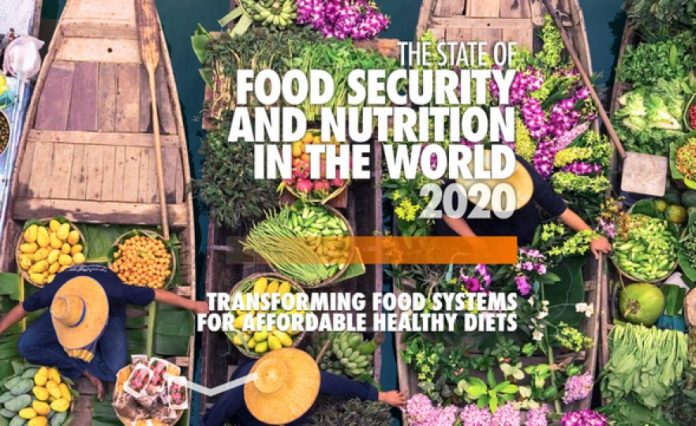Rome — Securing healthy diets for the billions who cannot afford them would save trillions in costs
More people are going hungry, an annual study by the United Nations has found. Tens of millions have joined the ranks of the chronically undernourished over the past five years, and countries around the world continue to struggle with multiple forms of malnutrition.
The latest edition of the State of Food Security and Nutrition in the World, published today, estimates that almost 690 million people went hungry in 2019 – up by 10 million from 2018, and by nearly 60 million in five years. High costs and low affordability also mean billions cannot eat healthily or nutritiously. The hungry are most numerous in Asia, but expanding fastest in Africa. Across the planet, the report forecasts, the COVID-19 pandemic could tip over 130 million more people into chronic hunger by the end of 2020. (Flare-ups of acute hunger in the pandemic context may see this number escalate further at times.)
The State of Food Security and Nutrition in the World is the most authoritative global study tracking progress towards ending hunger and malnutrition. It is produced jointly by the Food and Agriculture Organization of the United Nations (FAO), the International Fund for Agriculture (IFAD), the United Nations Children’s Fund (UNICEF), the UN World Food Programme (WFP) and the World Health Organization (WHO).
Writing in the Foreword, the heads of the five agencies warn that “five years after the world committed to end hunger, food insecurity and all forms of malnutrition, we are still off track to achieve this objective by 2030.” Read more…



